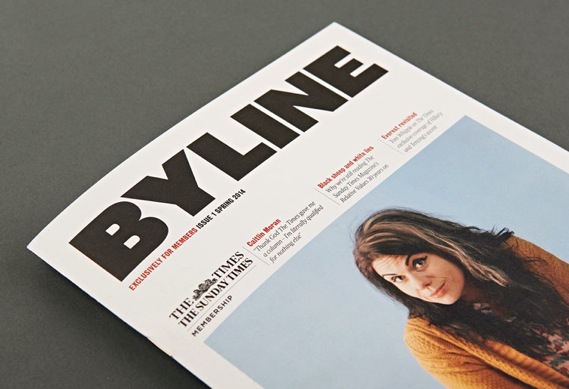Khoi Vinh, former design director of NYTimes.com, had a blog post up yesterday about the recent trend toward offering a type of insider status as a premium product at news outlets. His old employer has Times Insider, of course — part of the new Times Premier upsell tier, where you get inside dirt on questions like what Gail Collins does when it’s not peak political season. And in the U.K., the hard-paywalled Times of London is going with a lovely print magazine for its members called Byline.

Given the choice between the two options [New York Times vs. Times of London], I’m not sure which I would choose. On the one hand, I would likely get more actual use out of the Times Insider model. On the other hand, I’m skeptical about how often I’d really access that content, and having a real physical object like Byline’s lavishly produced magazine mailed to me four times a year feels like it might be a good reminder of the value of a paid subscription. In either case, the existence of these two experiments will likely tell us how compelling stories about the journalists themselves really are.
Vinh doesn’t mention one other recent entrant, Slate’s Slate Plus, which features items like what Dahlia Lithwick does every day. (Maybe people are really interested in what we do? Maybe?)
Leave a comment